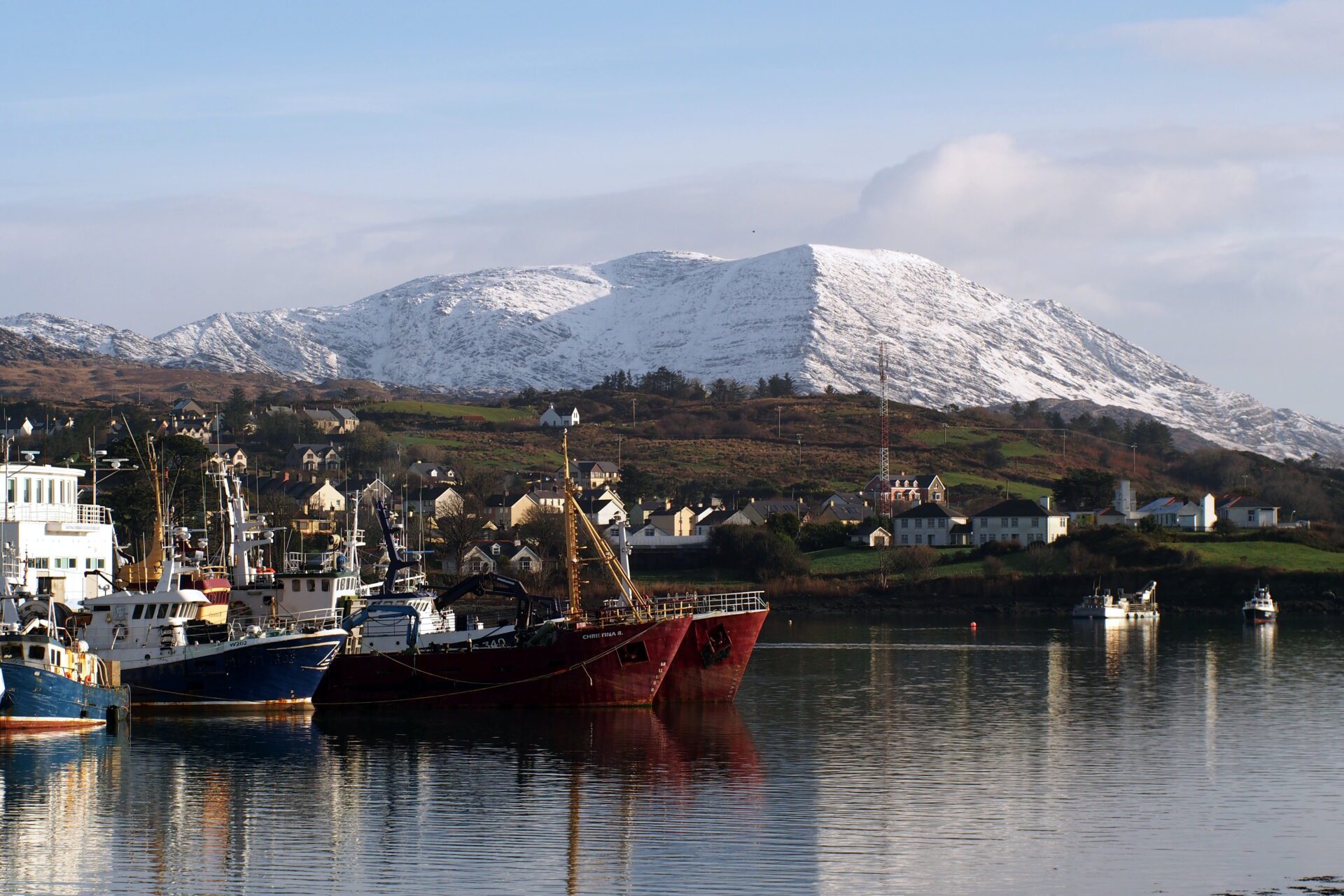Responding to news that Ireland’s High Court has overturned the ban on vessels larger than 18m from operating within the country’s six nautical mile inshore waters, Birdwatch Ireland and the Our Fish campaign have called on Minister McConalogue to immediately take the necessary steps to reinstate the ban, in order to protect Ireland’s coastal biodiversity and communities.
The ban was born of a policy directive introduced by former Irish fisheries minister Michael Creed in March 2019, following a public consultation, underpinned by the detailed reports by Ireland’s Marine Institute and Bord Iascaigh Mhara (Irish Sea Fisheries Board) on the environmental and socio-economic benefits of reducing the access of large trawlers to Irish coastal waters [1].
In excess of 900 submissions were received from the public, NGOs, inshore fisheries and fishers operating large trawlers. However, following an application for a judicial review taken by fishing vessel operators Tom Kennedy and Neil Minihane, the High Courts’ Justice Michael McGrath found the ban was “void and of no legal effect” [2].
Mr. Minihane and Mr. Kennedy took legal action against the Minister on a number of different grounds, including that the ban would prohibit them from trawling inside the 6nm limit for sprat. Both Mr Minihane and Mr Kennedy are directors and shareholders of companies who operate a number of trawlers over 18m in length.
Over 80% of Irish fishing vessels are less than 12m in length [3]. These smaller vessels are entirely dependent on the 6nm coastal zone for all of their landings, whereas trawlers over 18m only caught 2.6% of their landings in this zone previously, and they have access to offshore fish stocks. Additionally, these larger trawlers have the biggest impact on this coastal zone, which is crucial for ecosystem services such as fish nursery areas.
“We trust that Minister McConalogue will take decisive action to prioritise sustainable fisheries management in Ireland’s inshore waters on behalf of the vast majority of Irish fishers and coastal communities, instead of the demands of a few interested parties”, said Fintan Kelly, Policy Officer at Birdwatch Ireland. “The Minister must take steps to ensure that a ban on large trawlers within the 6nm limit is brought into effect as soon as possible, while ensuring that all affected stakeholders are afforded the right to consultation as highlighted in the court ruling”.
“It is significant that Justice McGrath agreed with the Minister’s position that the applicants do not have any property rights, in that fish stocks are a natural resource belonging to the Irish State, as the privatisation of fishing quota by large trawlers would be a significant negative precedent. Fish are a commons resource owned by the Irish people and managed by the Minister on their behalf. They are not the private property of individual fishing companies”, continued Kelly.
“It’s devastating that one of Ireland’s few laws that actively supported hundreds of low-impact fishers and their coastal communities, and could deliver massive environmental benefits, has been overturned on a technicality in favour of some of the most destructive fishers in the industry. Ireland was making positive progress by eliminating industrial fishing in coastal waters and it’s urgent that the new Minister take the legal steps necessary to reinstate the law. This is particularly important if the Irish government is genuine about its ambitions to halt the biodiversity and climate emergency”, said Rebecca Hubbard, Programme Director at Our Fish.
According to Ireland’s Marine Institute, restricting the access of larger trawlers inside Ireland’s 6 nautical mile zone would lead to improved protection of coastal environments, ecology and essential fish habitat. Fishing has significant effects on local ecology and ecosystems; particularly when fishing is intensive locally and results in overfishing. Overfishing stocks such as herring and sprat which provide food for fish, seabirds and mammals can have serious consequences for marine biodiversity and ecosystem functioning. The ban would provide ecosystem benefits, including for nursery areas and juvenile fish stocks. It would also further the sustainable development of the small scale inshore and the sea-angling sectors which strongly rely on inshore waters (see note 3).
Notes:
[1] Minister Creed provides increased protection to waters inside Ireland’s 6 mile limit – benefits for inshore sector, ecosystem and nursery areas, 21 December 2018
https://merrionstreet.ie/en/News-Room/Releases/Minister_Creed_provides_increased_protection_to_waters_inside_Irelands_6_mile_limit_%E2%80%93_benefits_for_inshore_sector_ecosystem_and_nursery_areas.html
“The judgement follows from an application for a judicial review taken by Tom Kennedy and Neil Minihane against the Minister for Agriculture, Food and the Marine over Policy Directive 1 of 2019. The directive was introduced by Minister Michael Creed on 5th March 2019.”
The Skipper, October 7, 2020
https://theskipper.ie/high-court-overturns-6-mile-ban/
BIM (2018) Economic analysis of trawl and seine fisheries within the Irish 6nm zone https://www.agriculture.gov.ie/media/migration/customerservice/publicconsultation/review6nmzone/4EconomicAnalysisTrawl270418.pdf
Marine Institute (2018) Trawl Fishing in Waters Inside 6nm around Ireland, Fisheries Ecosystems Advisory Services Marine Institute
https://www.agriculture.gov.ie/media/migration/seafood/sea-fisheriespolicymanagementdivision/publicconsultations/completedpublicconsultations/2TrawlFishinginWatersInside6nm171218.pdf
Marine Institute (2018) Fishing patterns and value of landings for vessels, greater than 15m in length, with higher than average fishing activity in waters inside 6nm, Fisheries Ecosystems Advisory Services https://www.agriculture.gov.ie/media/migration/customerservice/publicconsultation/review6nmzone/3FishingPatterns270418.pdf
About Our Fish
Our Fish is working to end overfishing and restore a healthy ocean ecosystem. By collaborating with others, and deploying robust evidence, we are calling for an end to overfishing as a critical and significant action to address the biodiversity and climate crisis. https://our.fish
About Birdwatch Ireland
BirdWatch Ireland is the largest independent conservation organisation in Ireland. We work with all stakeholders to improve marine conservation and sustainable fisheries policy in Ireland and Europe.
https://birdwatchireland.ie/


